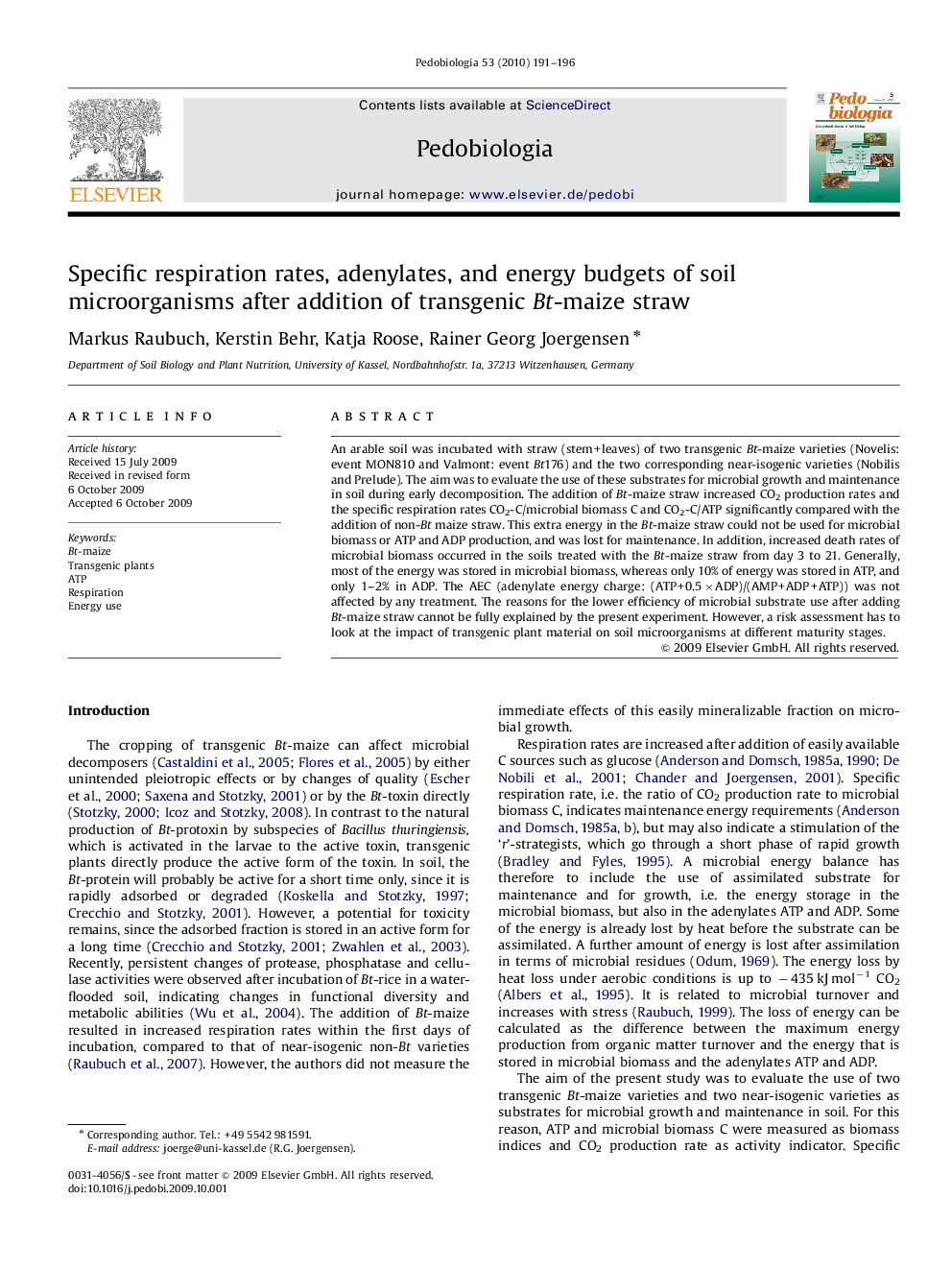| Article ID | Journal | Published Year | Pages | File Type |
|---|---|---|---|---|
| 2061124 | Pedobiologia | 2010 | 6 Pages |
An arable soil was incubated with straw (stem+leaves) of two transgenic Bt-maize varieties (Novelis: event MON810 and Valmont: event Bt176) and the two corresponding near-isogenic varieties (Nobilis and Prelude). The aim was to evaluate the use of these substrates for microbial growth and maintenance in soil during early decomposition. The addition of Bt-maize straw increased CO2 production rates and the specific respiration rates CO2-C/microbial biomass C and CO2-C/ATP significantly compared with the addition of non-Bt maize straw. This extra energy in the Bt-maize straw could not be used for microbial biomass or ATP and ADP production, and was lost for maintenance. In addition, increased death rates of microbial biomass occurred in the soils treated with the Bt-maize straw from day 3 to 21. Generally, most of the energy was stored in microbial biomass, whereas only 10% of energy was stored in ATP, and only 1–2% in ADP. The AEC (adenylate energy charge: (ATP+0.5×ADP)/(AMP+ADP+ATP)) was not affected by any treatment. The reasons for the lower efficiency of microbial substrate use after adding Bt-maize straw cannot be fully explained by the present experiment. However, a risk assessment has to look at the impact of transgenic plant material on soil microorganisms at different maturity stages.
